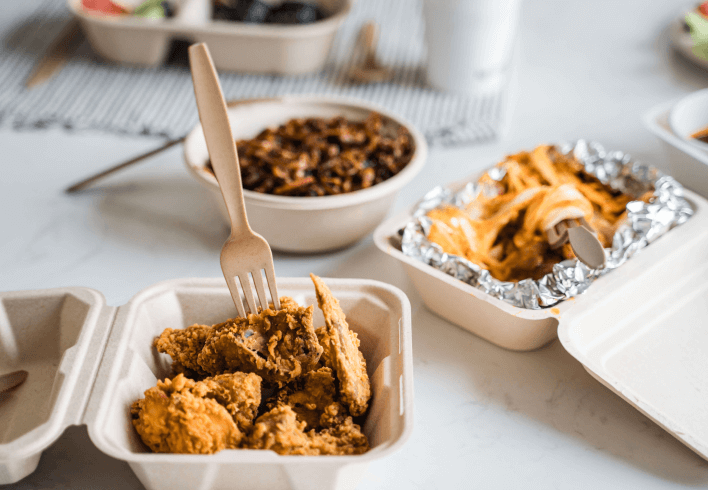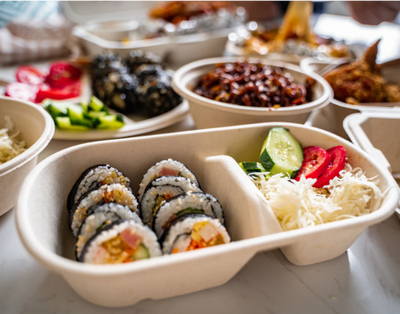In today’s fast-paced lifestyle, takeout has become a convenient and almost essential part of daily living. From busy professionals grabbing lunch between meetings to students studying late at night, takeout food in disposable containers is everywhere. While it may feel like a harmless habit, what many don’t realize is that the plastic takeout containers holding your food could be silently impacting your health.
Recent research is uncovering serious concerns around the chemicals found in plastic food containers. These materials, especially when heated or used with greasy foods, can leach harmful substances directly into your meals. And the long-term consequences? They go beyond just minor discomfort or irritation. Some studies have now linked regular exposure to these chemicals with an increased risk of cardiovascular disease, including heart failure.
Understanding what you eat is important. But just as important is understanding what your food is served in. In this article, we’ll explore the hidden risks of plastic takeout containers, the science behind chemical leaching, and why compostable food containers, especially sugarcane food containers, are a much safer alternative for both your health and the planet.
The Hidden Dangers of Plastic Takeout Containers
Most plastic food containers are made using chemicals like phthalates and bisphenol A (BPA). These substances can interfere with hormonal systems in the body and are known as endocrine disruptors. Long-term exposure has been associated with reproductive issues, metabolic disorders, and more recently, heart-related diseases.
Studies show that exposure to high levels of phthalates can lead to higher blood pressure, inflammation in blood vessels, and greater risk of heart failure. These aren’t theoretical risks, they are real threats that build up gradually through frequent use of plastic containers, especially with hot or fatty foods.
How Chemicals Get Into Your Food
The process of chemical leaching begins when plastic is exposed to heat. Pouring hot food directly into a plastic container or microwaving leftovers in it accelerates this process. Additionally, fatty or oily foods are more likely to absorb these chemicals, which then enter your body through consumption.
That comforting bowl of hot noodles or rich curry may be picking up more than just flavor from its container.
Compostable Food Containers: A Safer, Smarter Alternative
As concerns over plastic toxicity grow, compostable food containers are emerging as a healthier and more sustainable choice. These containers are made from renewable materials like cornstarch, wheat straw, or sugarcane fiber. They do not contain phthalates or BPA and are designed to break down safely in composting environments without releasing harmful toxins.
Choosing compostable food containers not only protects your health but also supports eco-conscious living. They are sturdy, microwave-safe, and can handle a wide variety of meals without compromising safety or convenience.
Sugarcane Food Containers: Designed for Health and Sustainability

Sugarcane food containers, in particular, offer a unique blend of performance and eco-friendliness. Made from bagasse, the fibrous material left after extracting juice from sugarcane, these containers are naturally heat-resistant, durable, and biodegradable.
EQUO’s sugarcane food containers come in many designs including square and rectangular boxes, compartmented trays, and sauce cups. They are free from plastic and completely compostable within months, leaving behind no microplastics or harmful residue.
Whether you're a business owner looking to upgrade your packaging or a consumer concerned about health, switching to sugarcane food containers is a proactive step that benefits both your well-being and the environment.
Protecting Your Health Starts with Small Choices
Every choice you make matters, even when it comes to something as small as your food container. While plastic containers may offer convenience, the health and environmental costs are becoming impossible to ignore.
Next time you order takeout or pack a meal, consider using compostable or sugarcane food containers instead. It’s a small shift that can have a big impacton your heart, your health, and your planet.


